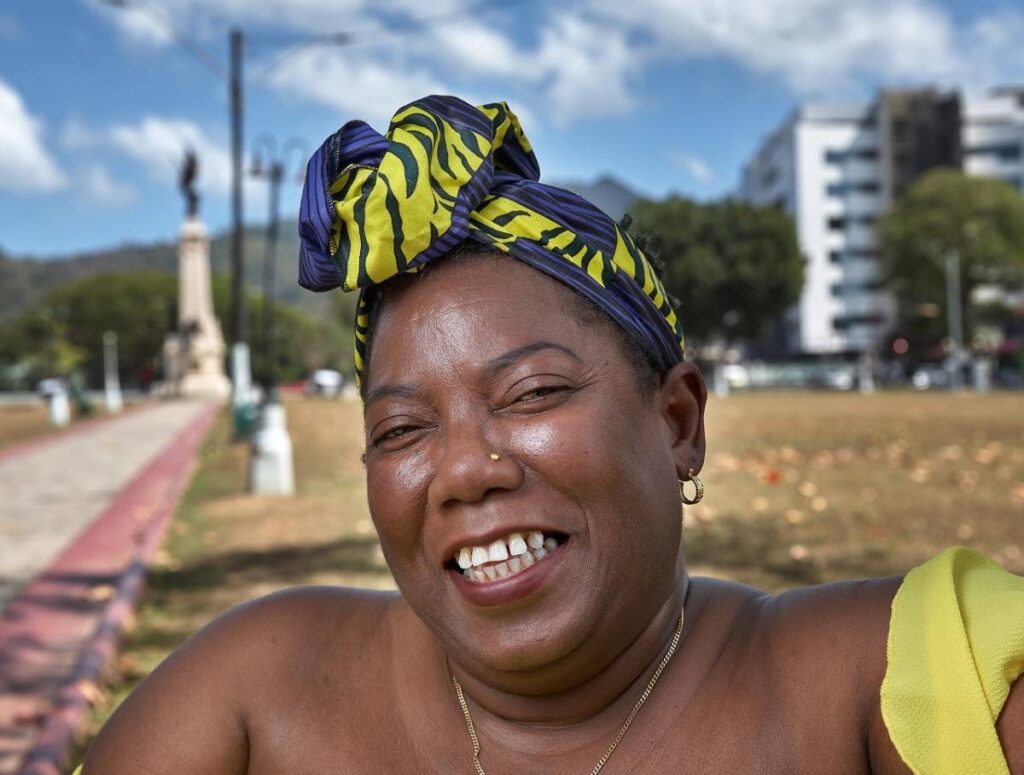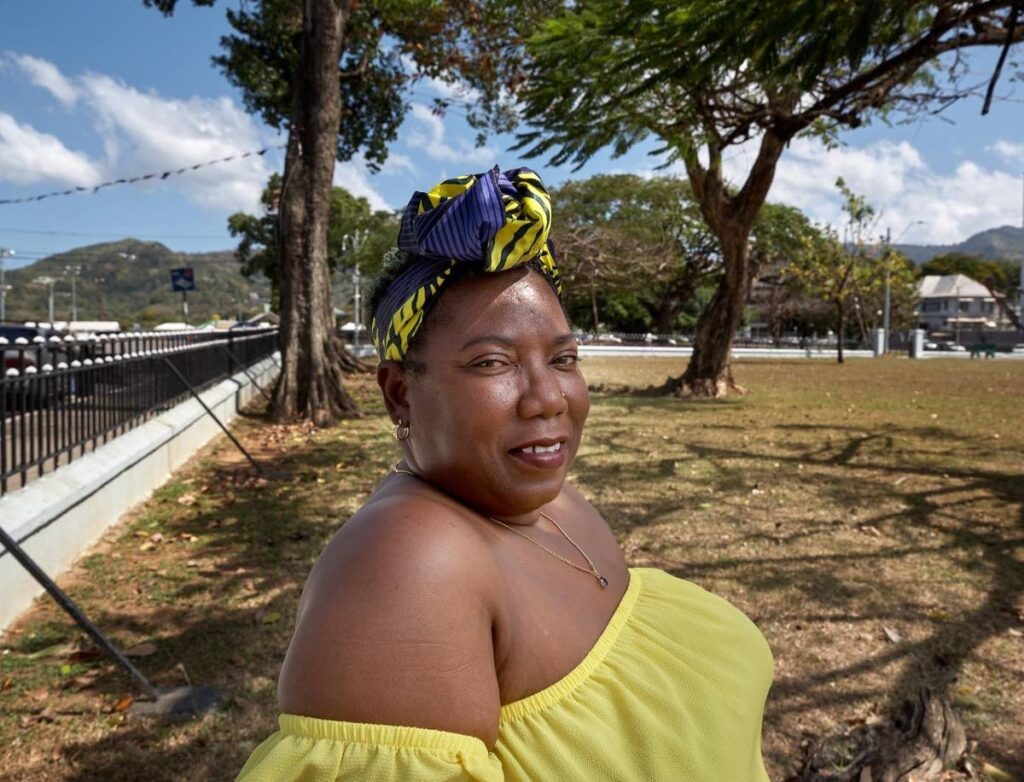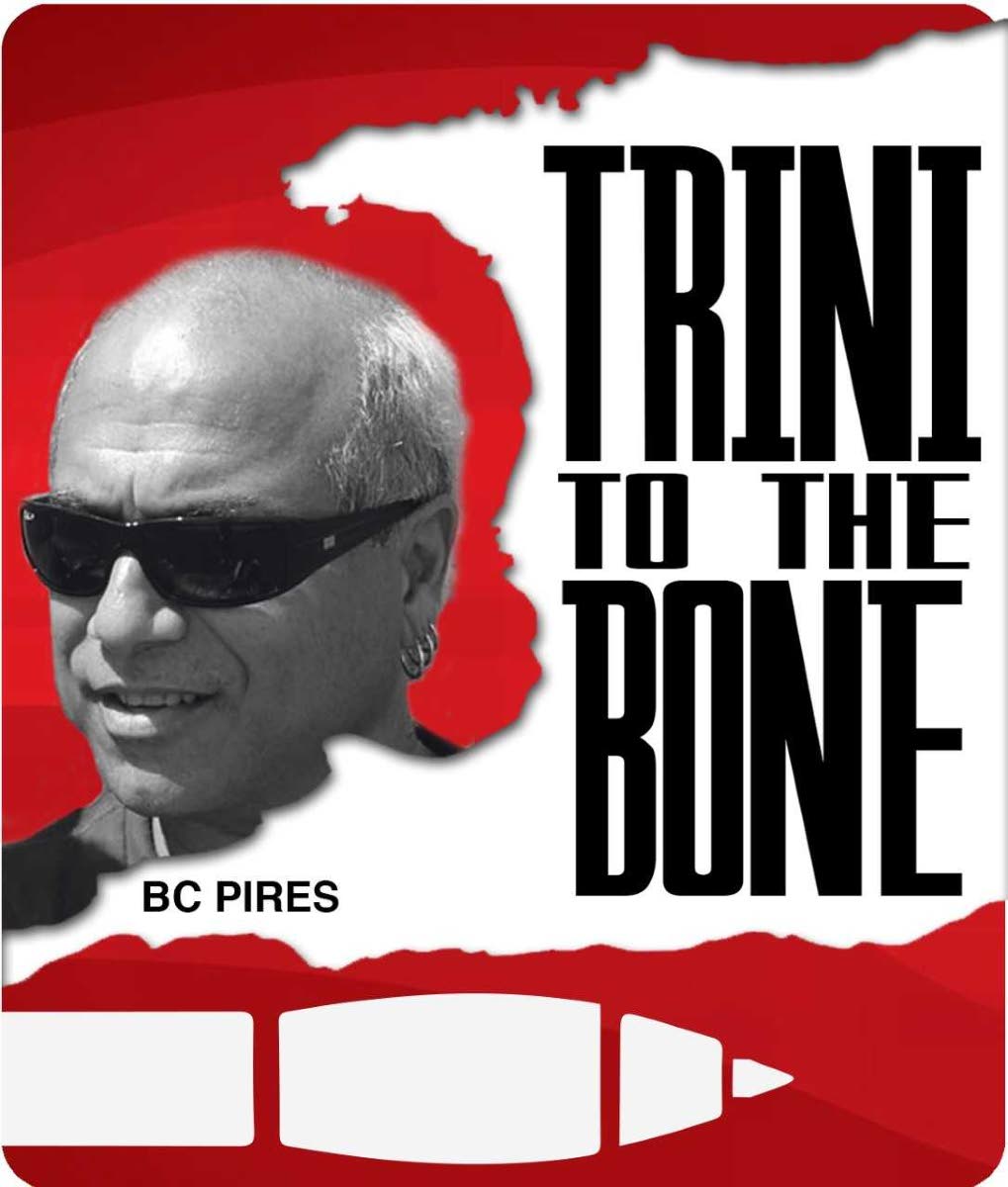From Sangre Grande to the Blood Bank

AS TOLD TO BC PIRES
My name is Karlene Thomas and I am the acting head nurse co-ordinator of the Blood Bank at Port of Spain General Hospital.
I now live at Curepe, but I’m originally from Sangre Grande, and that’s where I’m say I’m from today. Although I’ve been living at Curepe for 15 years. Definitely Grande!
Grande girl days was wonderful. Is not like now. You had freedom to roam the fields, climb trees, pick fruits. You had freedom in your neighbourhood.
The community spirit was there that you don’t see now.
I come from a medium-sized family, because my mom have seven children and I am the baby in the gang.
However, I grew up with my grandmother because my mother was not in the country.
My mom was a single parent. She left Trinidad in order to support us.
But our community consisted of almost 30 children, and we were like family. So I was in a medium-sized family, but yet, for all, also a large family.
I never knew a male figure in growing up. It was always just the women.
But I can’t complain, because we were always happy.
My grandmother ensured there was always enough to eat. We did gardening. We plant. We mind pigs, we mind chicken, we mind duck. So our food was homegrown.
Where I live in Curepe, we don’t have space to grow food. It makes a difference.
Growing our own food gave us discipline and responsibility. You were out of your bed by six because, before you leave to go to school, you had to wet the plants. Clean the pens for the pigs, chickens, ducks and rabbits.
And, with my grandmother, you could not be late for school!
My children are Kurel, Kyle, Curlieann, Kerrian, Isaiah, Abiel.
When Abiel was 12, I had Adrien and then my baby, Rayann. I don’t even consider her adopted. She’s eight.
I was definitely raised Catholic. No abortions and things like that.
But I love children. I got married pretty early, 17 turning 18, and I was a stay-at-home mom and wife.
I’ve never stopped believing in God.
I would take suffering from my children if I could. If BC Pires asks how God could let his children suffer, I say we choose what we want.

No, BC Pires, we don’t choose for five-year-old children to get cancer.
My son Isaiah is a cancer survivor. He was diagnosed when he was eight, the first child in the Caribbean to get Burkitt lymphoma. And he’s going on 33 now.
It was a challenge, because I was training to become a nurse: having to look after him and my other children while studying was tough. But it didn’t shake my faith. It strengthened it. Because my support was prayer.
My primary school was Sangre Grande Government on the Oropouche Road. We walked home for lunch, it was so close.
Then North Eastern College, where I got my subjects. That was more of a distance, but yet, for all, we walked.
The Blood Bank is definitely critically important but most people only come into contact with it when a friend or loved one is an emergency situation. Previously, you just saw people in their 20s and 30s and up. Now we’re encouraging folks from the age of 16-17 with parental consent to become regular blood donors. You’re not donating because somebody need, you’re doing it because it’s the right thing.
A male can donate every three months, four times for the year. A female can donate every four months, three times a year. Previously, donors had to be between the ages of 17 and 60 but there no longer is an upper age limit. So long as you pass the screening process, you can donate.
You are instructed to have a proper meal before donating blood.
I am taking from you. I am depleting the reserve your body is using.
We have sandwiches at the Blood Bank to top you up a bit. If you tell me all you had to eat before was an aloo pie, I can give you a sandwich to make sure your body has the carbohydrates to burn.
We advise you not to do anything strenuous after you donate. Go home. Rest. Allow the body to build back its reserve.
Yes, women have had to leave the Blood Bank because they were sleeveless. You can’t enter a government facility with your arms outside and with short pants.
The law has not changed in Trinidad as yet, although I know Mr Augustus in Tobago has suspended the dress code.
There’s no screen between the bleeding chairs in the bleeding room. If you black out, we have to flatten the chair and turn you to the side.
If what you have on is not proper, when I turn you to the side, your breast might be outside. The person on the chair next to you sees everything.
I prefer women to come in a proper attire: cover yourself as a female. Let’s at least try to maintain some dignity.
If the blood clots while we’re taking it, we have to stop the process. It doesn’t happen that often, but it does happen: because of dehydration, I can’t get the blood to flow.
Whenever you’re coming to give blood, try not to have coffee until after, because it dehydrates you. Have juice, have tea. You know you’re giving blood tomorrow, start boosting up on your water today. So you’re well hydrated and have that nice blood flow that doesn’t clot.
When you give blood you actually save three lives. One pint of blood helps to save three lives because we use the blood, the platelets and the plasma.
It’s also good for the donor. It’s healthy to (give blood).
Consider us as vampires but we get excited when we see a healthy flow or rich crimson blood. If that haemoglobin level is above 12.5, or, for men, 16.5, you say, “Yessss!” You put them in that bleeding chair, stick in that needle and you get that nice flow.
We encourage that person to become a regular donor.
The best thing about the Blood Bank is seeing folks come in sometimes uptight and vexed and, by the time I finish talking to them, they calm down.
I got into nursing not because of the salary: the joy in it is being able to help people.
The downside of the Blood Bank is discovering so many people, especially women, walking around with a low HB (haemoglobin) count and they don’t know.
If you don’t have adequate red cells, your organs is not getting an adequate supply of oxygen. You’re climbing a hill and you’re out of breath, but when you reach the top of the hill, you catch your breath and you don’t take the shortness of breath seriously.
Ethnic fatigue: they lie down and sleep and get up and feel okay, not realising there is more to it than what they’re seeing.
We ask these people to build up on iron-rich food and come back to be checked in two weeks. If there is no change, we advise them to have their blood tested and visit a haematologist.
I would encourage citizens to seriously look at becoming regular blood donors.
A Trini is somebody who knows when and how to de-stress. And to just chillax. Take things easy. That’s a true Trini.
Trinidad and Tobago to me is the land of my birth, the land of my joy. It’s everything to me. It has its strong points, it has its negativity but, you know what? It’s home.
If I leave and go anywhere, I come back to Trinidad. It is home.


Comments
"From Sangre Grande to the Blood Bank"